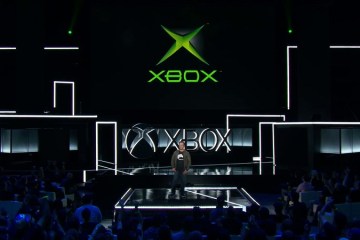
Many moons ago I set off on an adventure unlike any I had ever experienced. It took place across a huge world, sprawling several continents and oceans. There were kings and princesses, magical towns, caverns filled with timeless treasures, and fierce monsters traversing every nook and cranny. I had never been so immersed in a game as I was with the original Final Fantasy. As I saved cities from pirates and slayed evil elves that were plaguing local kingdoms, I realized my four heroes truly were the chosen ones sent to save the world. That is, until I hit a wall.
It was no real wall, of course, but the implied wall that many gamers smack into headfirst in many games. You realize that there is no way to move forward in the game unless you buckle up and prepare yourself for the grind. You do some action over and over again, whether it be facing lesser foes, solving several puzzles, or trying to collect certain items and gear, to get strong enough to face the wall that previously ruined your face.
My wall came in the form of a couple magicians that needed to be taught a lesson. It took little time, however, to realize that my party of four wannabees was not going to teach them anything. Never facing a need to grind before, I did what I imagine many first-timers to the wall may do: I fought them over and over, each time getting embarrassed with no strategy seeming to work. What was I doing wrong? How could I beat these minions of Gozer? Was I not supposed to fight them? Who could do this to me? Why are these magicians so mean?

As I threw a grand pity-party and invited myself, I realized something on my 20th or so approach to the magical bullies. I fought some ogres on the way to them, and I leveled up! Since I had not played a game with this sort of mechanic in it before (I played Final Fantasy before playing Dragon Warrior/Quest, unlike most gamers at the time), I never really thought much about all of those numbers floating about. That was math, and as I told myself in school, there was nothing in the “real world” that would necessitate the need to learn all of that math. Eating my own words, I proceeded to protect the world from dozens of hill giants and watched my heroes buff up in a fantastic NES training montage. Once I felt my warriors were swole enough, I charged headfirst into the wall again. Only, this time, it felt more like a stack of pillows, and I flicked those measly magical pests across the kingdom and back. After coming to a martial understanding with the wizards that they should simply fade away into the blackness, I was hooked! With the feeling I just experienced in overcoming a tremendous obstacle while lining my pockets with countless virtual riches for my efforts, I couldn’t wait to find my next wall!
Fast forward to today and grinding is a bit of a cringeworthy word in the world of video games. It presents a strange dichotomy because grinding out levels is welcomed in pure role-playing games. However, since those RPG mechanics have been implemented in everything apart from Simon Says, many gamers find grinding to be as appealing as finding a worm in their otherwise delicious apple. Game designers implement RPG mechanics for a variety of reasons, most of which positively impact a huge assortment of game genres. But the issue with these mechanics in any sort of game is that they are still based on a foundation of leveling up one’s character to make them stronger. There has to be a reason for the increase of strength or the system is rendered pointless. Often, games try to strike a balance so that the leveling coincides with the pace of the player’s journey through the story, but when this is done perfectly it can still leave the player wondering why he or she was getting stronger in the first place.
As game developers scramble to figure out the best formula of RPG mechanics for their particular project, another obvious issue glares at them: each player is different. Some gamers truly like to grind things out, but others think grinding is for coffee beans. When designing a game, it can be very challenging to walk the thin line to appeal to all kinds of gamers. Some developers simply make a game for one sort of gamer or the other, implementing a hefty dose of grinding, or just leaving it out completely, even with other RPG mechanics in place. In an effort to maximize their profit, however, game companies began to discover a key factor that every gamer has in common: psychology.

In an effort to figure out their audience, and thus capitalize on that information, video game companies began to study their consumers. They employed the efforts of psychologists to compile several data detailing what interests a gamer and what keeps them playing. The recent boom of mobile gaming is a direct result of these efforts, as is the current state of downloadable content found in games. While the studies provided game developers a broad understanding, they still needed to experiment to ensure their games were as lucrative as possible without pulling the wool over their consumers’ eyes and upsetting them.
Using these data in their purest forms, we get games like Candy Crush Saga and Clash of Clans, games that are basically the distilled psychological findings put to game form. As such, they have proven to be immensely successful. But when games try to experiment to broaden their scope, things can be very hit or miss. For every experiment that has gone well, such as Pokemon Go and Overwatch, there are others that fail miserably, as seen in the Evolve and Star Wars Battlefront II fiascos. Taking a chance successfully could mean huge rewards, but failure could literally cost the company everything.

A big reason for many failed experiments is not that a huge grind was present, but because the grind was used as a wall itself in an effort to encourage the use of real money to circumvent that grind. Since players already paid money for the game, many saw such systems as greedy, and regarded them with huge disdain. Others, however, simply saw them in the same vein as amusement park “Fast Passes”, where you can spend extra money to skip ahead of the line. All companies are in it for the money, first and foremost, and gaming companies have a great desire to figure out where that “sweet spot” is, where gamers can find the grinding to be fair and regard the real world purchasing options to be simply options instead of necessities.
The battle to balance grinding versus spending may be prevalent across the present spectrum of video game design, but grinding does not always come with a “skip ahead” option. It is in these moments that players must either accept the grind, or move on to something else. The trouble for those gamers that may prefer to move on is that the grind can be so sweet when the reward comes. Much like gambling, getting that payoff for all of your grinding causes your body to release endorphins, increasing that feeling of pleasure for receiving the reward. In an effort to obtain that feeling again, the grind becomes easier to accept, and the moving on from the game is suddenly pushed to a future time as there is more grinding to do.
There are some gamers that say they do not want grinding in games, but what they really mean is that they hate spending a great deal of time having to grind. Every game has some form of grinding, as every game has repeated actions required to move forward. The key is that players need to feel they are moving forward to the next stage or story chapter, or the grind becomes filler and without purpose. Some welcome that filler, seeing it as a form of longevity to continue enjoying the gameplay mechanics in the game for a while longer, while others feel it is a bad design choice employed simply to make the game feel longer than it should.

Although gamers of all ages have various opinions, the trend is that older gamers tend to enjoy the grind more than younger gamers. A good reason for that may be because the arcade games of the past were all about grinding. Zaxxon, Donkey Kong, Pole Position, and all of the other arcade games, including the pinball machines that lined the walls of the arcades, were all about grinding out the best score possible. There was no real story in these games that players cared about, except for putting their initials somewhere on the list of high scores. It was that quest to reach the top that drove us to drop quarter after quarter into those machines. As gaming flourished and became more of a story-telling device than a scoreboard attack, the focus of video games changed drastically. Arcades slowly diminished, especially with the advent of stronger consoles and the prevalence of the internet. Newer gamers got into games for their excellent stories and characters. Even the challenge of games, a staple of games since their initial nomenclature as “games of skill”, was lessened in an effort to draw in a broader audience.
Video games still required some form of gameplay, though, and grinding was something that gamers would experience in one form or another. Making peace with that means being able to enjoy a much wider spectrum of games, and enjoying their gameplay as much as their stories. Sure, if there is so much of a grind that it halts the game progression for a long period of time, it can be frustrating. When a game has truly exciting and engaging gameplay and fantastic locations worth exploring, however, any grinding we do in the game can seem non-existent as we fully immerse ourselves in the game’s world. The secret element that drained so many quarters from our pockets all those years ago was, simply, fun. That is the secret of the grind: grinding in games is the equivalent of returning a game to the roots of the arcade days, letting the gameplay alone drive the core experience. If the gameplay is weak, the grind exposes this. However, when the game is enjoyable to play, any grinding becomes more fun gameplay to experience.

At its base, the grind is a fantastic feeling of reward for the effort we put in. We attain a level high enough to beat our enemies, we get an item that we spent hours repeatedly trying to obtain, and we are able to move on to the next area where the grind begins anew. It compels us in the same way as watching our favorite team attempt to win a championship, or saving up enough money all summer to finally afford that new bike. We put in a ton of effort, and when the payoff comes, it feels completely worth it. Even if the end result is something other than what we expected, our time, effort, and tears were put into accruing whatever it was, and the ends justify the means. We cherish it, brag about it, and store it away in our memory banks as a truly fun moment in time. We savor it for but a moment, however, because a new grind is always about to begin.



[…] to learn the article in its authentic location you possibly can go to the hyperlink bellow: https://seasonedgaming.com/2020/05/21/the-psychology-of-grinding-in-video-games/and if you wish to take away this text from our website please contact […]
Damn… I loved this article so much. Thanks a lot for this. =) 5/5
Glad to hear it. It’s our pleasure and thanks for stopping by Seasoned Gaming!
[…] Psychology of Grinding in Video Games. [online] Seasoned Gaming. Available at: https://seasonedgaming.com/2020/05/21/the-psychology-of-grinding-in-video-games/ [Accessed 2 Nov. […]
[…] levels fast in Cold War can be a little difficult, or at least it is a bit boring. It is similar to grinding XP in any other game. The difficulty here is grinding levels isn’t as passive as it is an RPG. To […]
[…] applied excessively, especially when risks are overestimated like in the Subnautica example. People apply this kind of grind even in games and situations not designed for it and so it is important to find […]
[…] a book reader, you won’t feel the need to always see action. You’ll have fewer issues grinding for hours and won’t be as compelled to pay to accelerate the process either. You will see levelling up […]
[…] all for naught. P2E games seek to cross the work-to-earn bridge, but fall short in the sense that grinding games, while pleasant in some circumstances, can just as readily become work, sometimes […]